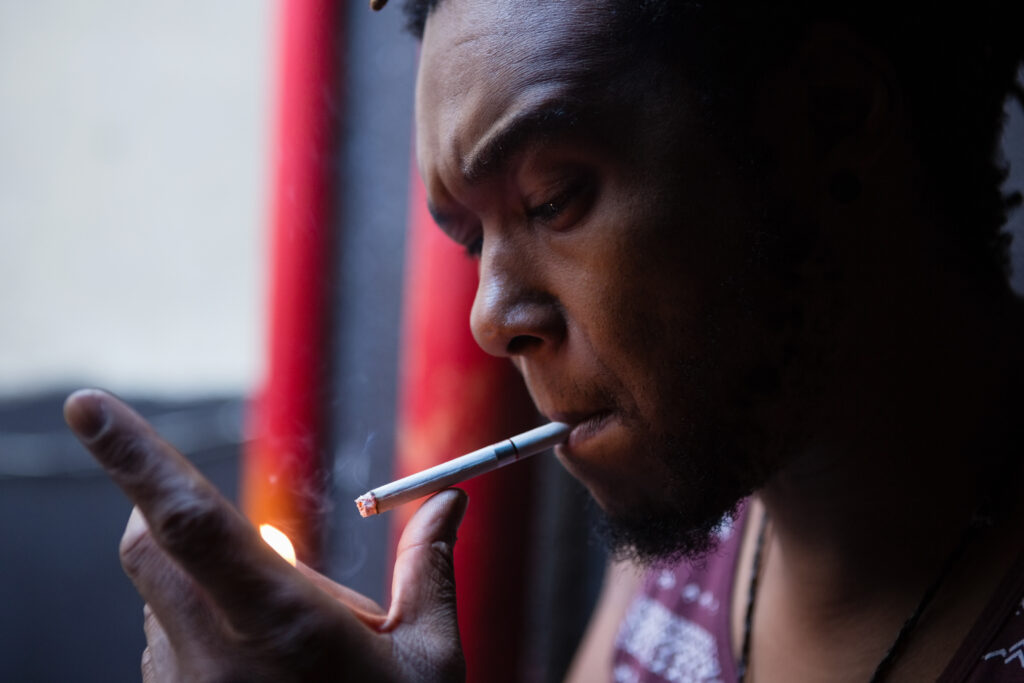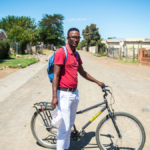- British American Tobacco South Africa (Batsa) has supported small-scale black tobacco farmers with equipment, funding and training since 2011.
- Some of these farmers in Limpopo feel used. The support dried up with little warning in 2021, leaving many of them in a desperate financial position.
- Batsa says that the programme was cut down because it “became commercially unsustainable” after the 2020 tobacco ban and the rise in the illicit tobacco trade.
Rabelani Mamagwa, 37, plants her hands nervously on her hips.
She’s standing in the middle of the piece of farmland in Mianzwi, just outside Thohoyandou, which she inherited from her grandmother, inspecting her cabbages.
The crops are her only form of income, and about two months away from being harvested, but fragile.
Four other local farmers are trying to help her figure out why her cabbages’ leaves are dotted with small holes.
“It’s diamondback moth larvae,” one says. “You need chemicals for these cabbages. They won’t last.”
Diamondback moth larvae can destroy a harvest, as the caterpillars eat away the leaves until only a lace-like skeleton is left.
Mamagwa’s eyes squint against the relentless sun; it’s 29°C. Behind the hills that surround her farmland, which is slightly smaller than a soccer field, there are villages inhabited by people just like her, all trying to make a living from growing food.
But life used to be much better. For a while.
In Mamagwa’s case, tobacco used to grow on her land; it brought her a bigger — and more secure — income than cabbages can.
But talk of tobacco farming agitates people here.
In 2011, the multinational tobacco manufacturer, British American Tobacco, offered Mamagwa and the other farmers a life-changing opportunity.
Mamagwa explains: “A man told us that British American Tobacco South Africa [Batsa] is looking for black farmers under the Emerging Farmer Initiative [EFI] so I went to the meeting at a nearby village. Batsa said they’d help us grow tobacco and buy it from us.”
The only requirements for the programme, she says, was farmland and access to water.
Mamagwa signed a contract, but she was in an uncomfortable position: she only had matric and didn’t understand all of the conditions.
“I didn’t read it [the contract] and they never gave us a copy,” she says.
“I didn’t think about it again because Batsa gave us everything — equipment, fertiliser, chemicals, barns for drying the tobacco and training on farm management.”
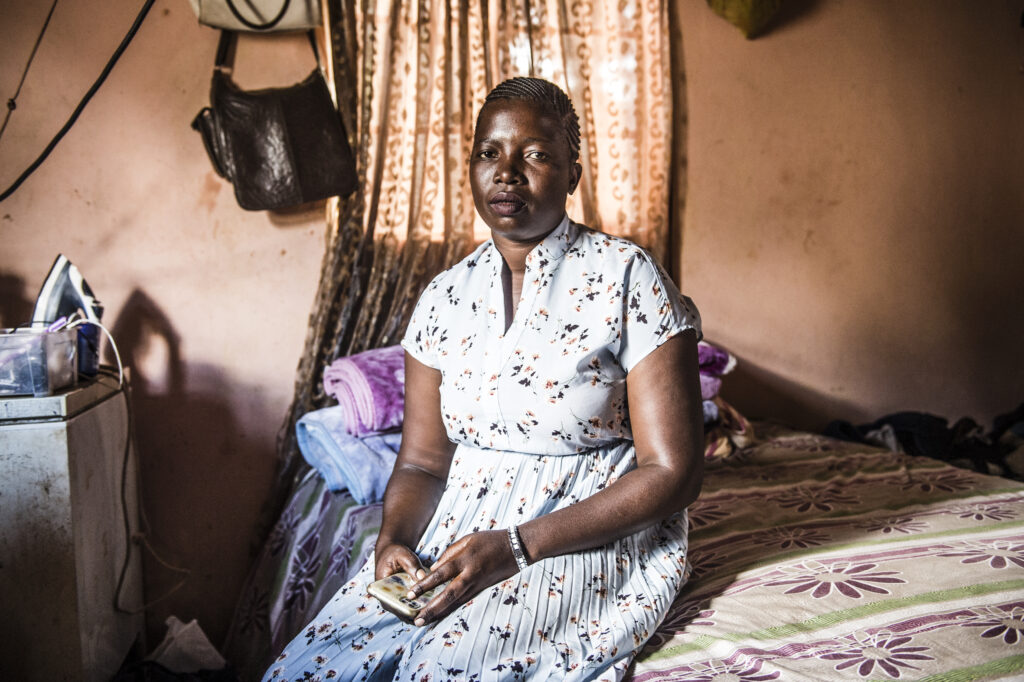
Batsa also provided Mamagwa with a mentor — and a market.
But in 2021 everything ended without warning, she says.
“That January they said they would collect some of our harvest one last time, but then all tobacco farming must stop,” Mamagwa recalls.
Outside Mamagwa’s house are three large wooden structures covered in sun-yellowed, tattered plastic that billow in the slight afternoon breeze. They’re all that’s left behind. She used the barns to dry the tobacco leaves, which were then packed in boxes and sent to the Limpopo Tobacco Processors plant in Groblersdal, from where it was sold to Batsa.
One former tobacco farmer, Lucky Ramabulana, concludes: “This project was meant to uplift farmers, but Batsa wasn’t transparent with us. They needed us, because they were scared of illicit trade and took advantage of uneducated farmers.”
Making bad look good
Illicit tobacco trade is the sale of illegal cigarettes on which excise duty or other tax has not been paid. Multinational cigarette companies have blamed this market for their dwindling sales figures and having to retrench workers.
But Big Tobacco has an incentive to oppose illicit trade: to protect their bottom line and ice out competitors.
Pushing a profit-driven agenda under the guise of a good cause, such as uplifting poor communities, has been used before by companies that make their money from selling things that can be bad for people’s health or the environment, such as the oil, tobacco or alcohol industry.
In 2011, Batsa set up a programme to help black farmers grow tobacco and food crops such as vegetables, maize and beans independently “to effect real transformation in tobacco farming”.
[WATCH] How did South Africa’s illicit tobacco trade get so bad?
Farmers say for the first few years, the training and mentorship Batsa gave them were outstanding, but it later became less useful. “They would send us mentors,” who, says Ramabulana, “couldn’t give us practical advice.”
According to the spokesperson of the tobacco giant’s South African arm, Johnny Moloto, the EFI “was established to train and support previously disadvantaged individuals looking to grow tobacco and other vegetable crops”. He said it later “became commercially unsustainable” and following the 2020 tobacco ban, they cut down on the number of farmers who could participate in the programme.
Instead, says Moloto, Batsa decided to “migrate all EFI farmers to exclusively non-tobacco crops over time”. He adds that in 2022 their programme “supported 79 farmers, planting 98 hectares of mixed vegetables”.
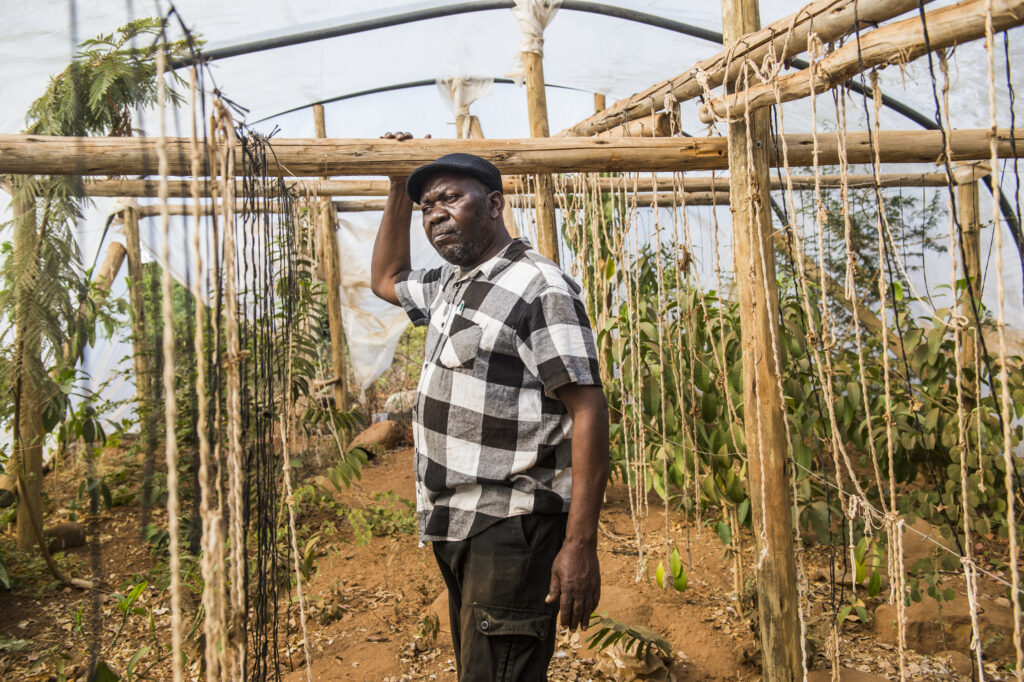
However, Ramabulana says the assistance was not enough for many of the former small-scale tobacco farmers to transition.
Cabbage seedlings and fertiliser alone for a hectare of land can cost over R29 000, without planning for labour or pesticides.
The support was to end in January 2021, during the harvest season, which runs from December to May.
When Batsa picked up the final batch of tobacco, shortly after the announcement, farmers say they still had tobacco in the fields. They didn’t have enough time to plan and at the same time save for switching to different crops while also carrying the production costs for the tobacco harvest.
Says Ramabulana: “Some of us went into debt to carry on farming.”
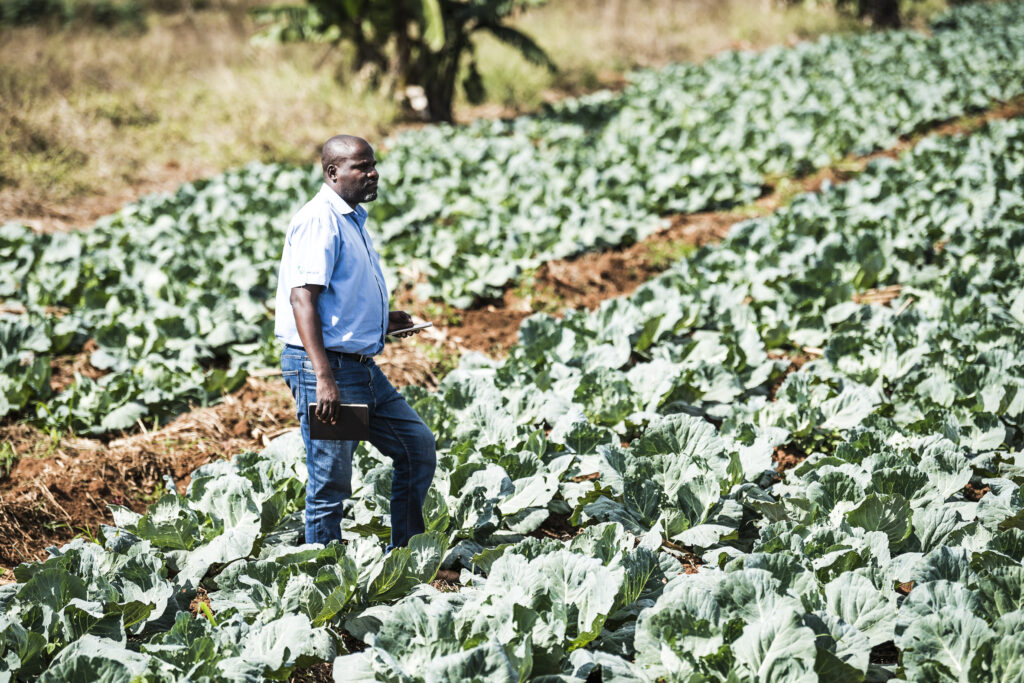
The blame game
Moloto says Batsa’s decision to scale down the EFI programme “reflects the wider harm caused throughout the tobacco value chain and society by the illicit trade in tobacco”, which he partly blames on South Africa’s five-month “unconstitutional 2020 tobacco sales ban”.
Shadrack Sibisi, chairperson of the Black Tobacco Farmers Association (BTFA) and to which all the EFI-supported farmers belong, agrees that the farmers’ dire position is because of the growing illicit tobacco market.
According to the BTFA, opposing increased excise tax and stricter tobacco laws will help fight illicit tobacco trade.
Perhaps it is not incidental that Batsa and the BTFA sing from the same hymnbook. A source who worked closely with the farmers says Batsa funds the organisation’s activities, such as staff matters, marketing and events, and helping to uplift farmers.
Batsa declined to comment on this allegation.
Sibisi also denies such funding, but admits that he was paid a salary by the South African Tobacco Transformation Alliance (Satta) between 2020 and 2022 for [running the BTFA’s] day-to-day operations.
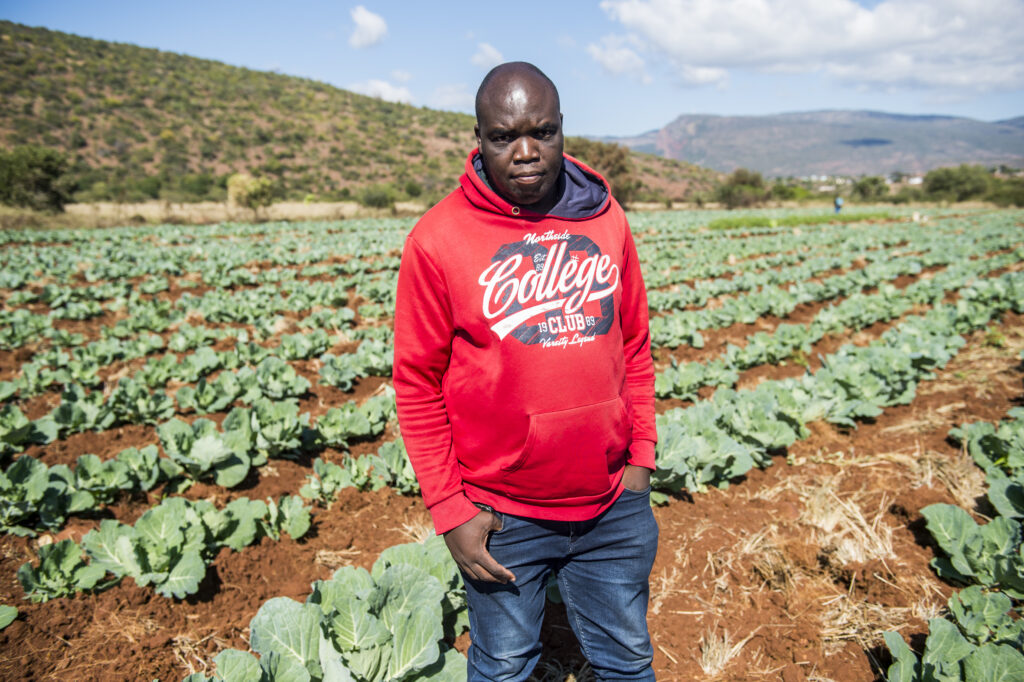
Satta, of which Batsa, BTFA and the Limpopo Tobacco Processors are all members, describe themselves as “the voice of South Africa’s legal local tobacco leaf and manufacturing industry”.
The source further claims they were instructed to coach farmers to exaggerate their success to the media and the impact of illicit trade. Farmers also say Batsa orchestrated an illicit trade protest in Pretoria in 2018, paid them and even bussed in people who were not tobacco growers.
Yet the tobacco company denies these allegations. “Batsa did not pay any party to participate in any marches, whether in 2018 or otherwise.” Instead, says Moloto, people from “across the tobacco value chain, including factory and farm workers” took part in the demonstration.
“When illicit trade affects one, it affects all,” he says.
But the view from the ground is different.
Says Ramabulana: “If a black tobacco farmer talks about illicit trade, they are being paid.”
Twists and tactics
Raising sin tax on tobacco has been proven to be an effective way to decrease consumption.
Sin tax is charged on potentially unhealthy products people buy often. Because the manufacturer is taxed, they raise the price at which a product is sold and so the consumer has to pick it up. In this way, sin taxes should help to discourage people from buying products that are bad for their health.
When people buy fewer smokes, cigarette companies’ profits take a knock. Finding a scapegoat or twisting facts, though, can deflect attention from the real issue — and help to get sales figures back up.
[LISTEN] The illegal cigarette business: How does it work?
Although Big Tobacco are quick to point a finger to illegal sales eating into their profits, some say it was actually their pricing strategy that created a gap for local manufacturers such as Gold Leaf Tobacco Corporation and Carnilinx to enter the market. Making products more expensive than what just adding the extra tax would have cost, they were able to profit despite declining cigarette sales.
Research shows that when the government imposed a tobacco ban in 2020 some local manufacturers were able to double their market share by selling illegal cigarettes.
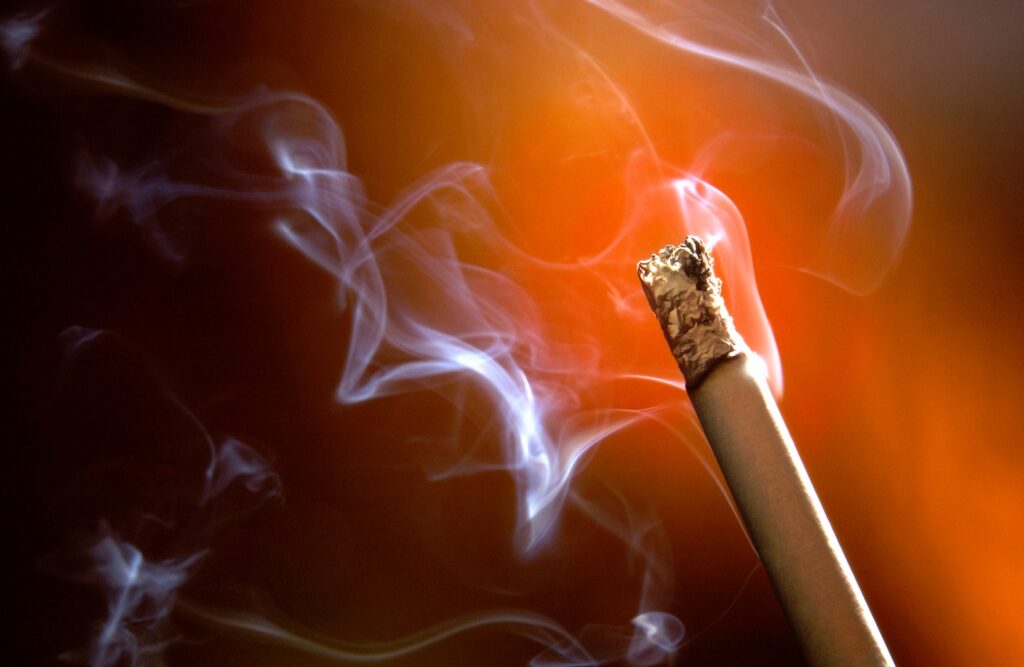
Stricter tobacco laws, such as the planned Tobacco Products and Electronic Nicotine Delivery Systems Bill, will also be bad for business — despite being good for people’s lungs and the economy on the whole.
In 2016, researchers estimated that smoking led to almost 26 000 deaths and the economy lost R42-billion to the habit, with 4% of the health department’s spending going to the treatment of smoking-related illnesses.
Francois van der Merwe, advisor to Satta and a director at Limpopo Tobacco Processors, argues that the “draconian” legislation will affect the farmers’ market because “illicit trade will increase and the demand for legal tobacco will decline, while overall consumption will increase as has been the case over the past seven years”.
Independent researchers estimate that the illicit market has increased markedly since 2009, but with a sharp spike over the last four years due, in part, to ineffective tax control.
[WATCH] A beginner’s guide to smoking laws
Earlier this year, Limpopo Tobacco Processors, a Satta member, launched the Stop the Bill campaign, encouraging South Africans to sign an online petition against it. If the Bill is stopped, they say, it will keep a tighter lid on illicit trade.
“Sometimes we use certain voices to emphasise the plea for the farmers in this case,” says Van der Merwe.
Head of the University of Cape Town’s Research Unit on the Economics of Excisable Products, Corne van Walbeek, says the use of black farmers is very powerful: “‘Transformation’ is a buzzword and when you add black tobacco farmers to that, it can make the public sympathetic to the tobacco industry.”
Planting a seed
In the past, farmer front groups have been used to amplify the interests of multinational companies — with little benefit to them.
The International Tobacco Growers Association (which some claim has historically been used as a front group for multinational tobacco companies) has consistently argued that the World Health Organisation’s anti-smoking policies will affect the livelihoods of farmers, while it has been accused of doing “nothing to help tobacco farmers and farm workers trapped in cycles of poverty”.
Moreover, it’s not unusual for the industry to highlight how much they contribute to poor countries’ economies as a way to pressure governments against adopting strict tobacco laws.
But they’ve been called out for this tactic — to make themselves look better — in the past.
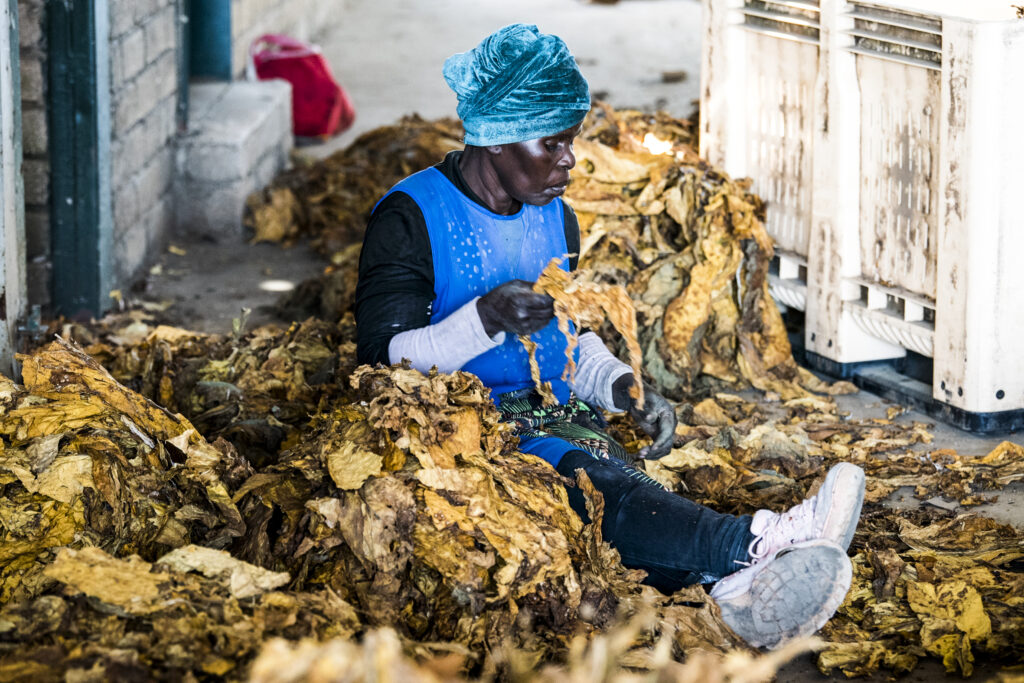
Evidence in countries such as Malawi, Kenya and Bangladesh show small-scale tobacco farmers live in poverty because high labour costs, expensive farming supplies and the way tobacco is priced make it difficult to turn a profit.
When the industry provides incentives to make farming look attractive, such as offering loans, subsidising input costs or promising to buy produce, farmers end up becoming dependent.
Also in South Africa, research shows that small-scale farming in places like Limpopo is difficult without support from the government or big business, with more than half a million farmers laying down their hoes between 2011 and 2016.
Batsa’s Moloto also points to the government: “We believe it is important for large companies to work with and support other parts of their industry value chain, but it is a pity that the farmers in our value chain do not receive more protection and support from government.”
Back to square one
Although Mamagwa was no longer part of the programme, she still had to pay her farm workers and hire transport to move the tobacco from the fields to the barns. This left her in a desperate financial situation.
“It was very hard for me and I was struggling to pay rent,” she says. “Eventually I had to pull one of my sisters from college because I could no longer afford the fees.”
Continuing without Batsa’s support was impossible. “I sacrificed my future for my younger siblings,” Mamagwa says. “I thought Batsa would make things better, but they have made it worse for us.”
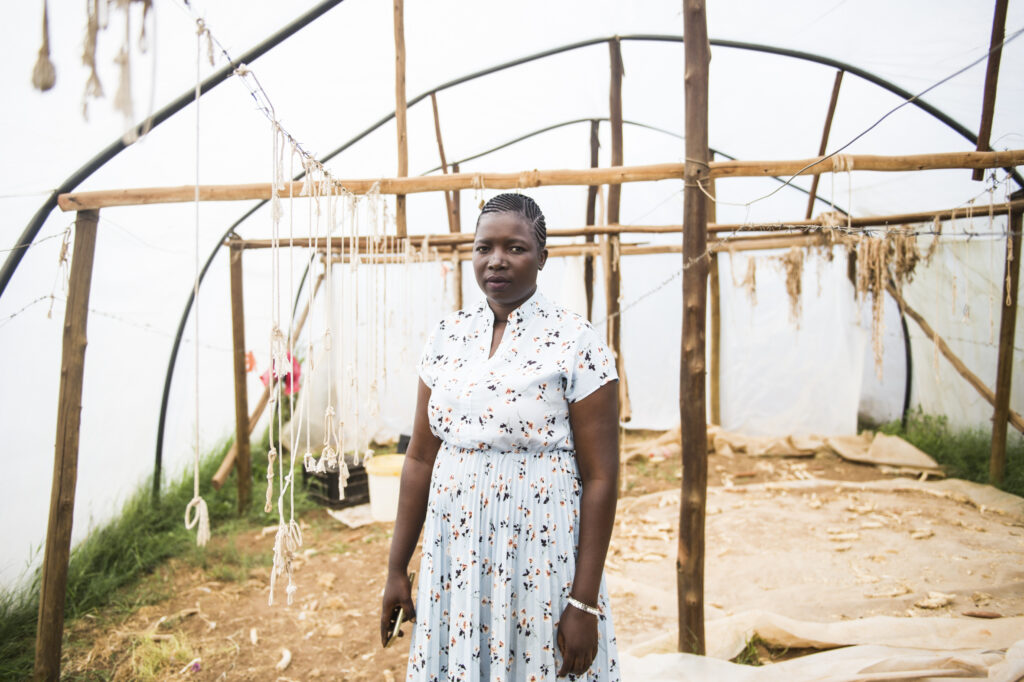
About a 20-minute walk from her farmland, four of Mamagwa’s siblings are trying to keep busy. One of her sisters is braiding a client’s hair in front of Mamagwa’s one-bedroom house to help out with the bills.
She has a total of six siblings, and supports all of them — no one has a job. When she grew tobacco with Batsa’s support, she was able to pay for three of them to study.
“If we met our targets we would get bonuses, so I was able to send my sisters to study. One did financial management at university.”
In her bedroom, Mamagwa is getting ready to catch a lift to Thohoyandou to buy the chemicals she needs for treating her cabbage crop.
When she walks to the lounge later to wait for her transport, she points to a certificate on the wall. “In 2016, I won third place in the department of agriculture’s Young Aspirant Farmer Awards,” she smiles. “I was so proud.”
Mamagwa sits down on an old, beige couch. The TV is blaring with a Meghan Trainor song in the background.
“I am in crisis,” she says and gets up to put an empty KFC bucket in the trash. “They just dropped us — I feel so used.”
Christina Pitt is a health journalist at Bhekisisa.

